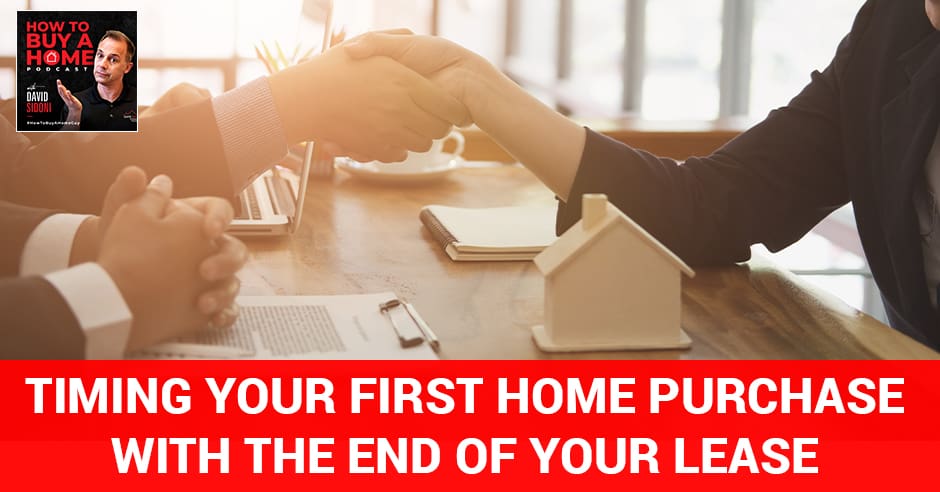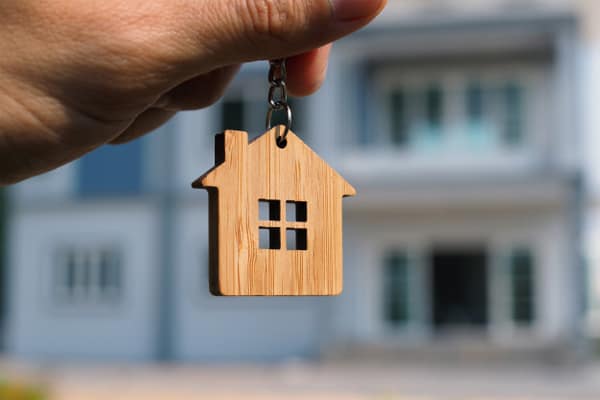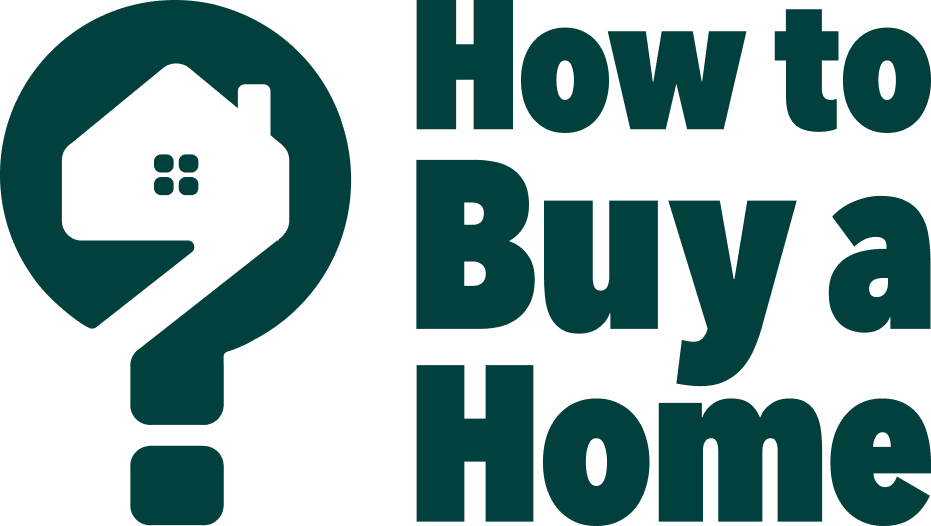
Planning to buy your first home takes lots of planning around multiple variables. How does a first time home buyer know if they can make a purchase by the end of their current lease? David Sidoni, the How to Buy a Home Guy, answers this question in this episode. Don’t make this decision on your own. Get the facts and the hacks on how to maximize your first home purchase to save you the most money by timing the market and your lease.
—
Timing Your First Home Purchase With The End Of Your Lease
Timing Is Everything In Everything When Buying Your First Home, But What Should You Do About Your Lease?
This is a bonus episode because I was scheduled to do my 2021 Housing Market Forecast. During the holiday break at the end of 2020, many of you suddenly had the same question. I decided it’s time to answer it. Let’s answer that now.
—
It’s a bit after New Year’s Day so Happy New Year, everybody. You, regular readers, out there soaking up all the knowledge. If you’re new, welcome. As I mentioned at the top, during the holiday break, the most common thing I heard besides “thank God that 2020 is ending” was many first-time buyers asking the question that I have heard many times in my several years of helping first-time home buyers, both here and over the past several years, all across the country. The big question is timing the move around the end of a lease. I get it. It seems like a no-brainer. “I still get a few more things in order. You told me to do all this planning so I’m doing all that planning. That date in June, July, September, and October, that’s a perfect date for me to shoot for. I’m busting my butt to save up for this. Why would I even contemplate paying to get out of a lease? I’m counting every single dollar. That’s the whole plan. That’s wasting money.” Not always.
If you read the blog, you might have a guess what I’m going to say next. If you’re a regular reader, you know what things might affect buying your first house. It’s timing. Timing affects everything in real estate. The location is great but it’s all about timing. To know of breaking your lease and buying a home before your lease is up is going to lose you money, I understand that’s the logical assumption, or whether it’s going to save you money, that involves history and math. Deal with it. The school had some value and now is the time that you accept that. Before we jump into the history and the math, let’s talk about the psychology of the lease end date.
The Psychology Of The Lease
Logically, there is a simple financial aspect to breaking the lease. Think of it this way. Would you take $2,000 less on your car trade-in if you could buy the next one for $20,000 off its valued price? I’m using math to change your thinking. Back to the root psychology of the lease on a whole. Waiting out your lease can sometimes seem prudent because it’s a concept that you are comfortable with. This is the cycle that you and your friends all grasp. It’s something that you’ve been doing for a while. It’s your first step into adulting is renting and working for a landlord. When you’re a young adult budgeting and those adult things versus trying to budget the fun things in your life, it can be a very delicate balance.
[bctt tweet=”Timing affects everything in real estate.” username=””]
A lot of people live close to paycheck-to-paycheck without a ton of savings. You make enough to cover your rent and fun stuff to do and then you do it again next month and the month after that. When you’re living a life that, you’re trained to see the end of a lease as a normal milestone. One, you might have to save up for because if you’re going to move out and go someplace else, you’re going to need a first and last deposit if you’re moving. If you’re going to stay in the same place, you have to be ready to change your budget in case there’s a rent increase. It’s been your harsh annual reminder that you’re growing up and you’re heading into adulting. You mark that date, and it becomes a day that you understand.
Sometimes, a date like that is not necessarily the milestone date. It’s like a New Year’s Resolution because here we are in the new year. Let’s say you’re in the middle of the year, it’s August, and you know that you’re starting to gain weight. You’ve been stuck at home during the middle of a global pandemic, eating pints of ice cream. Why wait until January 1st to start eating better and work out? Why not start in August especially when you’re going to chow down in November and December? You might as well start your program now instead of looking at that arbitrary date in the future which is based on some calendar or the lunar movements around our planet.
That has nothing to do with you and your financial well-being. Let’s get out of the Freudian emotional roots and back into math time. I know that some of you think that this is like a first-grade math problem, because why would anyone throw away money to break a lease to then go out and buy something more expensive? Sometimes, you save more than you lose and I’m talking save lots more. It all depends on timing. Simple math part one. If you wait until the end of your lease, let’s say that’s an extra four months before you buy your first home, and your rent is $2,000 a month. That means that you threw away $8,000 in the toilet while you waited while breaking your lease would have only cost you $2,000.
Simple math part two. Did you know that when you buy a home, you get 30 free days living in your new home before they make you pay for it? Thirty free days for you to work, collect your paychecks, make some money, and fill up your bank account before they ask to pay that first mortgage payment. Here’s how it works. As a renter, to pay for a roof over your head in March, you pay your rent ahead. On the 1st of March, you give them all your money and that payment pays for the upcoming 31 days in March. If you pay a mortgage, you pay for March on April 1st so you live there all during March. You pay on April 1st to pay back for the previous. In that case, it’s 31 days in March. You pay upfront at the start of the month and in a mortgage, you pay the end of the month for the 30 or 31 days you lived there.
How The Math Works
Are you confused? That’s why your phone has a quick rewind button. When you buy a home, here’s how it works. Let’s say you’re closing on February 15th. At that closing, that’s the day that the house becomes yours, you pay your down payment and your other closing costs. You’re also going to pay ahead, the only time you do in your mortgage, for the remaining 13 days of February. You close on the 15th and you pay the 16th to the 28th as part of your closing costs. Whenever you close on whatever month you do that, you do the same thing. You pay the remaining days of whatever month that you close with your down payment you’re closing. Now that you have the keys and you’re moving on the 15th of February, in this little sample scenario or whatever month you do, that means that month that you move in, that’s handled. It’s done.

You’re moving in, you invite all your friends over, and you begged them to bring food since you spent all your money on the down payment, and you’ve got to eat Top Ramen and mac and cheese because you’re out of dough. You’re having fun, March 1st comes around in this example we’re doing. Relax, no payment. That means you get to work through the entire month of March with no huge payment like you usually pay on the first of every month. You’re banking money from February 15th to March 31st. Six weeks of banking without a big run payment. Imagine how much more money you would have if you could skip last month’s rent payment. You have shifted to paying after your 30 days of habitation in the home that you own instead of when you were renting when you paid before the next 30 days that you were going to be living there.
Going back to the little example here. March 1st comes around. You’ve already paid for those February days of the closing. You’ve lived there a couple of weeks. It’s March 1st, no payment due. You live for 30 days making money and saving money with no payment until April 1st. I know it is freaky-deaky, that’s why you read the blog. It’s to get all these cool hacks. Take the first couple I’ve given you. The math is simple. The first thing we talked about was getting in earlier because you start paying yourself sooner and your four months of rent that you were going to do because you want to finish out your lease, it goes into an asset for you instead of your landlord, thus you are making money in the long run.
The second thing we talked about that you read multiple times is you get 30 days rent-free or mortgage to make money and then you can make up for that lease break penalty, so you can start paying yourself way sooner with no penalty to your monthly budget. Did you get that? Let that all sink in. I’ve been doing this for several years and I know that many of you have a glazed look in your eyes. For the real big, fat numbers. For those of you who DMed me, texted me, emailed, or call over the winter break, those of you guys who were ready to buy in 2021, but you’re going to wait until your lease is up in August 2021 or October 2021. Some of you even said, “I’m going to wait until November or December 2021 because that’s when my lease is up.” First of all, if you’ve been planning and you think that your 6 months or 12 months out from buying your first home, you should have your full real estate team in place now.
Do not do this alone. I’ve said it before. A plane traveling from LA to New York City is off course 90% of the time. It’s the computer giving the little corrections along the way that keep it on course in that scheduled time. Here’s the question. Do you think that you have the skills and the knowledge of an airplane computer in this analogy? No. You shouldn’t. That’s not your job. That’s your realtor and your lender’s job. You need guidance. There’s no shame in that. That’s the whole point. That’s why we hire wonderful professionals in our life. Mostly if you’re one of my people out there thinking that 2021 is your time, let’s get the history subject mixed with the math subject to see how the numbers shape out. The forecast for 2021, which is using our history in our housing data from the past, it’s looking like housing will continue to go up in 2021.
[bctt tweet=”Did you know that when you buy a home, you get 30 free days living in your new home before they make you pay for it?” username=””]
Prices went up 7% and 9% across the country in the crap show that was 2020. The 3rd and 4th quarter sales of that hell year 2020, they’re looking to close out 20% higher than 2019. During a jacked up and scary election time and a freaking global pandemic, those are the numbers. That’s a quick cliff notes on the history which leads us to the math and the analysis. If you take the 2021 housing forecast from even the most conservative economic people, you’re going to get an average, middle of the road forecast that says, “Prices are probably going to go up 5% in 2021.” That’s conservative. We’re taking people who were negative and some of the optimistic people, and we’re still coming up with a 5% average.
I’m going to go into detail on the 2021 forecast in the upcoming show. The one I was supposed to do but I had to talk about this because you all kept asking me about it. We’ll explain deeper the reasons behind the predictions for the increase in 2021. You don’t want to miss that episode. Subscribe now and it will be coming up soon. For now, let’s roll with the numbers from these smart guys and use the numbers that I’ve gathered from these guys, as well as other people. All of them are way smarter than me, the guy at your gym, and probably smarter than your Uncle Harry who told you how to buy a house, or that annoying lady from your yoga class. Five percent increase in price, that’s the number from the economists.
Here’s the math, 5% increase on a $350,000 house is $17,500. That means that six months of that 5% increase, the half of that, that would be $8,750. If you want to wait until October 2021 so you don’t break your lease, you do have the option to buy in March 2021, break a lease, pay $2,000 because you broke the lease, but your home is going to appreciate conservatively. $8,750, that’s the money you’re going to make equity. That’s the profit to the home. Subtracting your lease break fee, you’re still up $6,750. Let’s remember, throw on top of that, $2,000 a month for six months that you’re not paying in rent but rather you’re putting it into a mortgage, which means you’ve invested $12,000 into yourself by putting that money into the home.
Doing the simple math, the home went up to $8,750 but it costs you $2,000 because you broke the lease so that’s $6,750. Plus, we’re going to add the $12,000 of those six months that you put into the home because you get to keep that and that’s an asset unlike light and fire that money when you’re renting. That’s $6,750 plus $12,000, that’s equals $18,750 in the black. If you’re a faithful reader, you’ve read about the gigantic mortgage interest tax deduction. When you stop renting and you become a homeowner, you don’t get that as a renter, you get that when you pay that mortgage. I’ve talked to you guys about how you can hack the system to get that money upfront throughout the year. If you don’t understand this, go back and read it. If you’ve read and you know what’s up, you can tack on $400 a month that you’re going to get as tax benefits as a homeowner.
$400 times 6 months, that’s $2,400 more. Taking your total to $21,150 that you will be gaining buying in March 2021 instead of renting through until October 2021. Remember at the beginning, I talked about that car trade-in. What if you got $2,000 less on your trade-in, but if you took that $2,000 less, you would get $20,000 off the value of a new car. This whole point is moot because you get the 30 days free, mathematically speaking. Remember the forwards and backwards thing. Even without the timing, which is the crucial part of this equation for 2021 from March to October, think about the timing with interest rates being low and with the equity going up in the home. Even without that timing, if the market was going the other direction or if interest rates were high, you still get 30 days free for you to make that money. You would lose nothing.

Even in a flat market with no appreciation, you’re still going to get $12,000 that you put towards yourself instead of to a landlord and you’re going to get $400 a month in tax breaks. Even if I take the appreciation out of the equation, you’re still up $14,400. That’s a lot of math. Is this giving you a headache yet? Are you massively confused? Don’t be. You can do this. It takes a little time to grasp it. Don’t give up and say, “It doesn’t make sense for me.” Without talking to a professional and grasping the true economic situation for your specific situation. If you try to figure it out on your own, you’re like someone who has a stomachache and says, “I have pancreatic cancer.” You went online, looked up a couple of things that decided that. You’re like someone who doesn’t talk to a specialist doctor and you self-diagnose. “Doctor, how to buy home guys here to give you the facts and the hacks on all the numbers and most importantly, 2021 timing?”
Don’t Do It Alone!
You’re thinking. “Thanks for waking me up and getting me past the fear of a lease break. Now, what do I do?” Let’s start at the beginning. Reverse engineer your savings plan. Don’t start with, “I’m going to squirrel away money. Keep my head down. I’m going to save and I’m going to pay down my debt.” How? Until what? What’s your process? How much are you going to pay it down? What’s the end goal? Don’t do any of this without a map. You can’t figure out exactly how much you’re going to save if you don’t know exactly how much that’s supposed to be. You can’t figure out, “I’m going to save 10% so I can get X amount if the amount X is still X.” You need to know that. Talk to someone. Whether you’re 2, 3, or 4 years out, get a pro and they can help you reverse engineer it so you’re doing efficiently in the smartest and the best manner for you to help you to reach that goal.
You need the best tactics, tools, and techniques to save. Budgeting can be tough but if you know what you’re doing and you realize how much you have to pay down the debt and how much you need to put in the savings, that’ll turn you into the best possible borrower, which is what the bank looks at you when you’re trying to buy a house. That’s how they look at you. You’re not a credit score and not a savings account, you’re an entire entity, a borrower. The way they look and figure out what a borrower is, that’s a complex algorithm. Your logical and reasonable thoughts of what that might be, what a bank thinks is a great person to give money to, it could be rational and sane but wrong in the way the banks evaluate you when they’re using their convoluted spreadsheet.
You need to know what the algorithm of a home buying borrower is. That’s where you need to be. Do you have any clue how to do that? Do you have any clue what in the world that is? Have you stopped reading? Some of you might know what’s going on. Some of you might’ve woken up from a brain coma because that information lulled you to sleep. Sometimes, there are logical steps that work but if you’re going to do it, you might as well do it with the guidance of a professional. It’s free. It can cut your renting time in half. Even if you think you’re doing everything right, there’s a bunch of things you can do better with the right guidance.
[bctt tweet=”Even if you think you’re doing everything right, there’s probably a bunch of things you can do better with the right guidance.” username=””]
Read episode 33, you’ll hear a real-life story from some first-time homebuyers who figured this out. Lots of things in this process take time. I hate to be that guy, that authority figure spitting out all the responsible tasks that you should be doing instead of being out there, living your best life. I get it. It’s boring crap sometimes, but if you take a few minutes and you plan then you’re going to be able to do more fun things later on because you’re going to be able to afford more events, trips, parties, night outs, traveling, and buying useless junk from the internet. Imagine, if you had been putting money towards a living asset as opposed to throwing money away in rent, how much crap you could buy from the internet with all your profits.
If you think you can ever get ready quickly enough, if you’re overwhelmed of the thought of repairing your credit, or working within a budget to start your savings or reducing your debt and you assume you need that extra time in your lease, that you’re like, “It’s too much, Dave. I can’t handle it. I need this time to get everything all in order.” Most of the time, the biggest reason that you hear that it took people a long time to get all these adulting things in order, it’s not because of the duration of time that doing it takes, it’s simply because they started too late. They heard his information, they knew about it, but there’s an enormous gap between the time when they heard the information versus when they start the date and start doing it.
It didn’t take them a long time. It took them a long time from when they heard about it to get the action steps happening. You’ve got to follow a plan and do it with a professional. It’s that simple. You have to start. If you start, your time to do what other people said took a year might take you through three months. If you do that now, you’re armed with all the tools, the links, the apps, and the information in both audio and written form then this will happen to you a lot quicker than you think. Most people have a giant obstacle in front of them that keeps them from starting and they can’t find the starting line. You’re here, put on your track shoes on the track, and get the entire path right in front of you.
It’s in the form of the previous episodes, content, and resource links. It’s in the other places that I’ve told you to go to research to help you with saving and debt consolidation. The biggest obstacle is starting. What stops you from starting misinformation and unfounded fear? You’ve got that beat. This is a saying when I’m trying to get people to figure out how to do these things that feel overwhelming to them. You’re going to get it done. How do you eat an elephant? One bite at a time. There’s another saying in real estate, it’s that, “If buyers think they’re ready to do this in six months, they’ll be ready in three. If it’s longer than six months, the actual date is shorter the longer you think you are out.” If you think you’re three years out but you started a guided plan now, you’ll be ready to start the process in one year. Things get cut shorter when you’re working with an efficient plan.
The number one thing I hear all the time is, “I wish I’d started this earlier.” I’ll be working with first-time buyers and they’ll say, “David, once I got all this information, I’d look back and I realized I could have done this 1, 2, even 3 years ago, but I was scared, and I kept renting and lit my money on fire when I could’ve been building my own wealth instead of building my landlord’s wealth.” Go back and read my personal story about me in my twenties and all the money I gave to somebody else. That’s why I started the show. This is my mission. It’s a passion project. If you’re reading this, perhaps you’re curious, and this is a great place for you to get some ideas because you want to use this stuff down the road, but chances are, I know a lot of you have been flying out there without a pilot, sailing your boat without a rudder, TikToking but you never took a dance class.

You are here because you’ve been thinking about this and trying to do all the right things on your own. You haven’t had any professional guidance except for your parents or your relatives who might have some outdated ideas, not because they’re bad people because they haven’t done this in a while. Maybe you picked up a few tidbits while you’re Googling. That’s cool. I applaud you for it. Great to do your research, but let’s transform you into somebody seeking in the dark into what you want to be. An informed, empowered, educated buyer who learns all the facts and the hacks and doesn’t get ripped off. A savvy buyer who gets the most out of the stupid high rent money that you’re going to be thrown away every month anyway.
Talking about a lease. In summary, what do we learn? One, timing is everything. Two, math and history are your friends. Three, rent forward, mortgage backwards. Four, using that timing in breaking your lease could save you money in 2021. If this episode hit home if you’re baffled. If you have questions and need someone to explain this to you, hit me up on Instagram @DavidSidoni. You can also join the How to Buy a Home Facebook group, or you can contact me through my website, DavidSidoni.com. If you are more of a video person, check us out on YouTube, that’s @DavidSidoni You can always go to the website, DavidSidoni.com. Send me an email. You can be 1 of the 62 people who hit me up during holiday break and said, “My lease is up in October. What do I need to do?” You need to find a professional and buy a house in April.
Did you learn something? Subscribe and help us out. Review the show wherever you can and it will help other people find the show and get them started on a journey. If you still don’t have a unicorn, a pro-team helping guide you, reach out to me and let me help you get started. We’ve got people all over the nation. No more excuses for you. No more incorrect facts holding you back. I hope that you read the information to tell you that you’re closer than you think. Don’t tell me you can’t do this, because you can do this.
Important Links:
- Episode 33 – How These Planners Bought Their First Home and Learned Their Plan Wasn’t Enough! – Real Story #3
- @DavidSidoni – Instagram
- How to Buy a Home – Facebook group
- @DavidSidoni – YouTube
This podcast was started for YOU, to demystify things for first time home buyers, and help crush the confusion. After helping first timers for over 13 years, I knew there wasn’t t a lot of clear, tangible, useable information out there on the internet, so I started this podcast. Help me spread the word to other people just like you, dying for answers. Tell your friends, family, and perhaps that random neighbor you REALLY want to move out about How to Buy a Home! A really easy way is to hit the share button and text it to your friends. Go for it, help someone out. And if you’re not already a regular listener, subscribe and get constant updates on the market. If you are a regular and learned something, help me help others – give the show a quick review in Apple Podcasts or wherever you get your podcasts, or write a review on Spotify. Let’s change the way the real estate industry treats you first time buyers, one buyer at a time, starting with you – and make sure your favorite people don’t get screwed by going into this HUGE step blind and confused. Viva la Unicorn Revolution!
Instagram @DavidSidoni
Tik Tok @howtobuyahome

